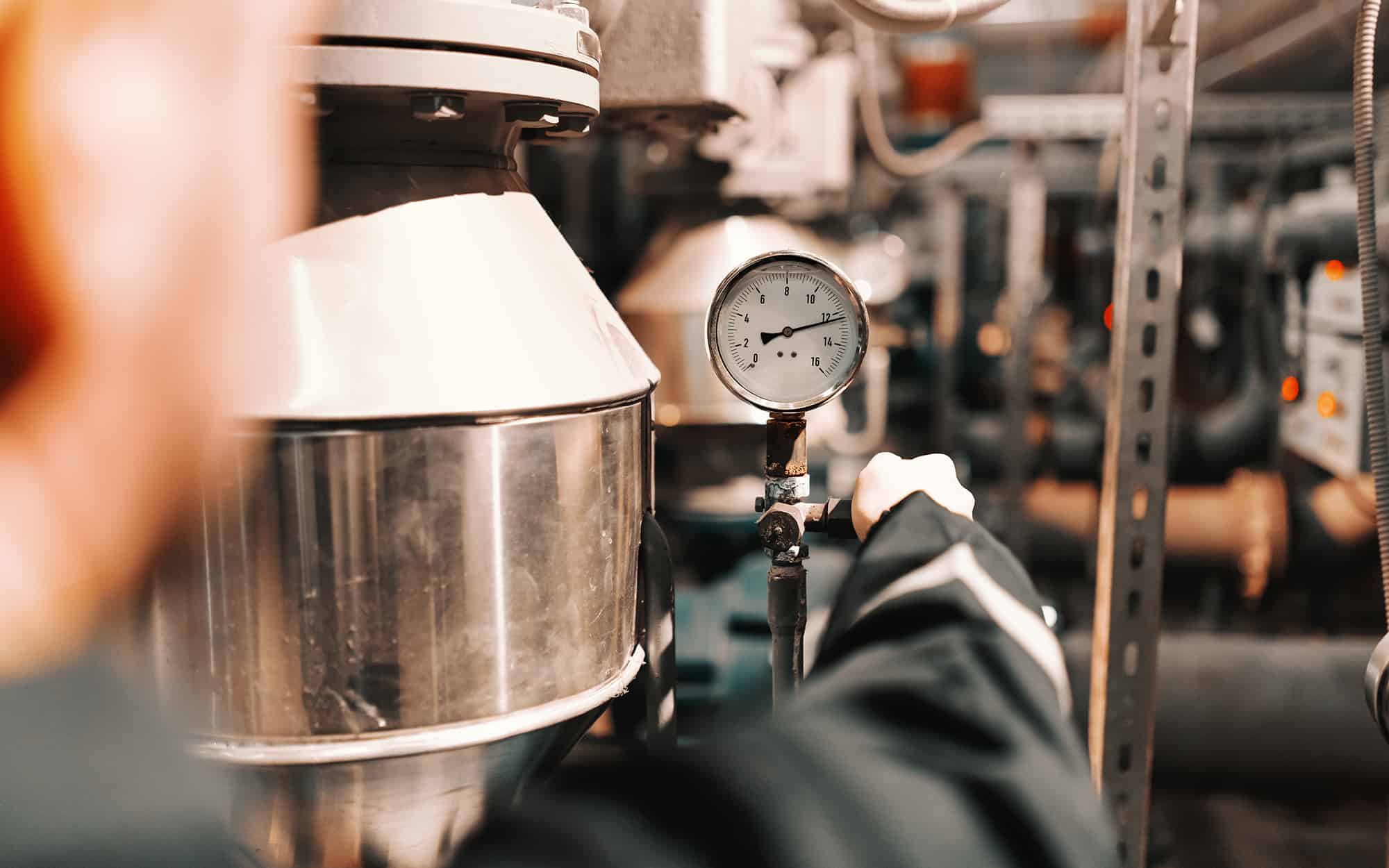
Did you know that turning off your furnace or boiler is more than just adjusting your thermostat? Continue reading to review our recommended steps for properly shutting down your heating systems for the warmer months.
How to Turn Off Your Boiler
Turning off your boiler in the summer saves you money and decreases your energy consumption—but many people don’t know how to do it correctly.
Here’s a step-by-step guide if you’re unsure of what to do with your boiler in the summer.
Contact an HVAC Professional
You should never turn off your boiler if it’s damaged or broken because it might damage it further or completely break down.
Hire an HVAC technician to inspect your boiler to make sure nothing is wrong with it before turning it off. An expert notices issues that you might not see yourself, so it’s best to have them look at your system before shutdown.
Double Your Standard Blowdown Rate
If you schedule your boiler shutdown, double your current blowdown rate for the two weeks preceding your scheduled turn-off date. When completing this step, increase your sludge conditioner dosage by one and a half to two times.
Stop the Automatic Boiler Cycle
Next, you need to stop the automatic boiler cycle and take the unit out of service. You also need to blow down the boiler several times from each outlet during this step. Then, stop the steam and feedwater valves.
Remember not to use cold water to decrease the temperature of your boiler unit because this could create leaks, and don’t drain the water while it’s hot. Hot water bakes sludge to the sides of your boiler, which can be difficult to clean.
When the boiler is cooled down and off, drain it.
Let Your Boiler Dry
Let your boiler air dry without thoroughly washing it. Once the water has drained from the boiler tubes, you can wash it. Then, flush out all leftover sludge and control lines to prevent sludge buildup.
Wash the Boiler With High Pressure
Always clean the water-side surfaces with a high-pressure hose to thoroughly remove any debris. Then, remove any ash or soot from the fireside surfaces to prevent corrosion. Consider coating the fireside with oil to protect against future damage.
Turn on Boiler Intermittently
Every couple of weeks, turn your boiler on for a short amount of time to keep the valves working properly and prevent rust buildup.
How to Turn Off a Furnace In The Summer
Turning off your furnace is a bit different than turning off your boiler since furnaces heat your home with air instead of water. Follow the steps below to turn off your furnace properly:
- Set your thermostat to cool to activate your AC.
- If your furnace is powered by gas, turn off the gas intake.
- You can also turn off your furnace with the on/off button.
- During the summer, keep the area around your furnace clear.
- Don’t store other equipment near your furnace.
- Change your HVAC filter regularly to keep the unit in good condition.
- Contact an HVAC contractor for furnace maintenance.
Why Is Turning Off My Furnace or Boiler So Important?
Turning your boiler completely off saves you more money than if you just changed the thermostat or left the boiler on a lower setting. You see drastic savings when your gas and firing aren’t on for extended periods, because you’re using less energy.
Turning off your boiler in the summer also helps the environment. You’re not consuming as much energy or gas or putting unnecessary waste into the atmosphere during the summertime.
Leaving the machinery on when you don’t need to can also lead to a boiler breakdown.
Where Can I Get Help With Turning off My Furnace or Boiler?
The HVAC experts at React Industries are an excellent resource for those who aren’t familiar with boiler shutdown procedures.
Our team has over 37 years of experience with boiler maintenance, inspections, and shutdowns, and we ensure your system is running efficiently before turning it off.
We want to prevent future boiler problems and save you money—that’s why we perform thorough inspections and make professional recommendations.
Contact us today to schedule your boiler inspection and get your HVAC system ready for summer.